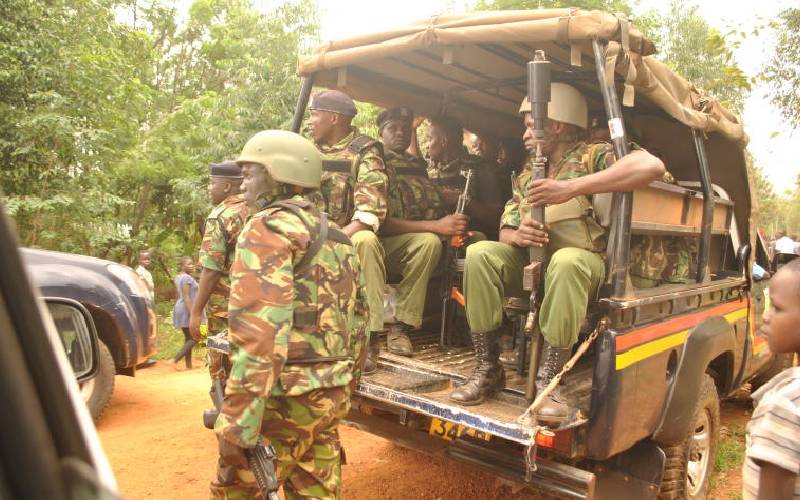×
The Standard e-Paper
Fearless, Trusted News

A contingent of police officers at the scene of crime in Matungu Sub-County on May 5, 2019. [Duncan Ocholla]
An uneasy calm is slowly returning to crime-prone Matungu following a series of gang attacks that left at least 27 people dead.